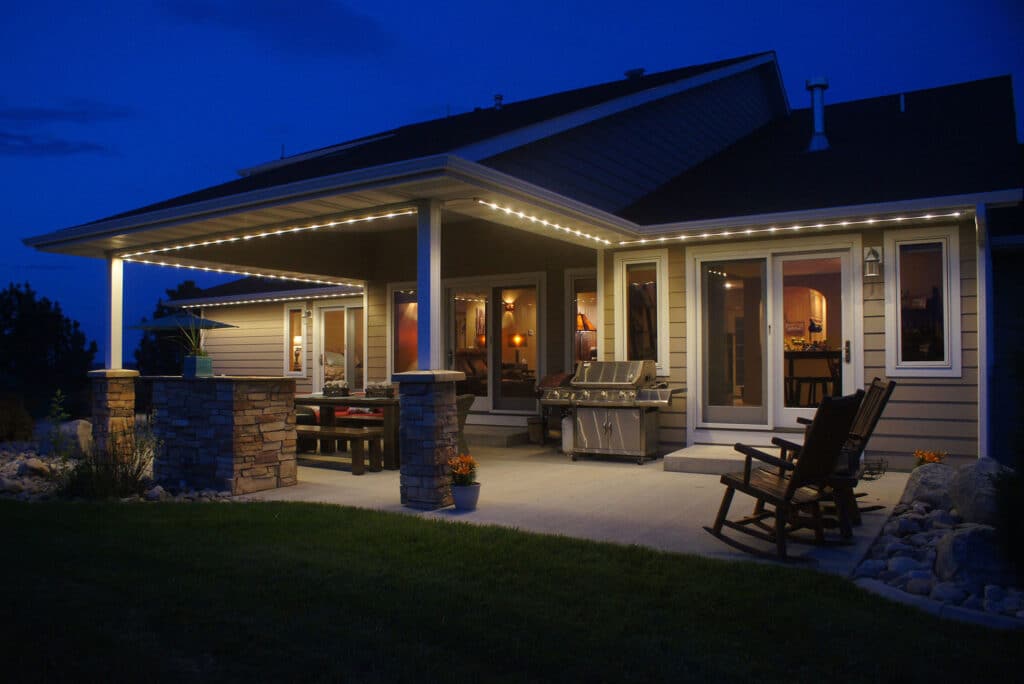We may not have reached the official start date of summer, but in St. Louis summer starts whenever it wants to, not when the calendar says. And while St. Louisans love the chance to get outside for ball games, grilling, pool parties, and concerts, we don’t love everything the warm weather brings. Those pesky mosquitoes, ants, ticks, and other unwanted visitors can definitely put a damper on all the outdoor fun. However, with smart strategies, you can reclaim your outdoor living spaces and keep those pests at bay.
Get rid of insect breeding grounds
Many insects, such as mosquitoes, thrive in stagnant water. If you immediately think that’s not a problem, well: think again. It doesn’t take much water at all to make an attractive mosquito nursery. Even an ounce of water will do. So it’s crucial to eliminate standing water sources in your St. Louis yard and anywhere near outdoor living spaces, even if it’s only a little bit.
Walk through your property looking for these little insect havens. Regularly empty and clean birdbaths, flower pots, gutters, and any other containers that may collect rainwater. If you leave a water dish out for pets, empty and refill it daily (your pets will be happier about this, too).
After the next rain, do another walk around and look for spots you might have missed. Rainwater will collect in any spot it can, and if it’s not emptied out or quickly evaporated in the sun, it will get put to use by all the mama mosquitos.
Pest-free summer strategy: Walk through your yard and check all outdoor living spaces weekly to find and empty any standing water. Most mosquitos that like breeding near houses and yards don’t travel far, so when you eliminate any chance for them to breed in your yard, you can significantly reduce the mosquito population.
Keep your yard clean and tidy
Keeping your yard well-maintained has lots of benefits: you can show up the neighbors, have the best landscaping on the block, win the eternal adoration of all HOA members, and gaze with a keen superior eye on those scruffy bushes down the road.
But wait, there’s more! Keeping a clean and tidy yard is also a good way to reduce insect problems and deter bigger pests, like shrews. Overgrown vegetation provides shelter for insects like ticks and mosquitoes. Piles of debris, stacks of sticks, or leaf litter are cozy little hiding places for outdoor pests.
Pest-free summer strategy: When doing yardwork or landscaping, bag up the lawn refuse in biodegradable bags immediately. If composting, spread the clippings or other yard materials out in a thin layer so they decompose quickly and don’t create a new habitat.
Protect your favorite outdoor spots
It’s a real bummer to get all set up with a cold drink in your favorite spot, only to be welcomed by over-eager flies, mosquitos, gnats, and all their friends. There are two great strategies that will help you to enjoy your outdoor space without being constantly harassed by pests: screens and fans.
For outdoor spaces with some structure, like pergolas and gazebos, look into screen options. There are many fine-mesh screen options that can be installed temporarily (for the season) to reduce the insect annoyance. Outdoor curtains can also help, and are handy when you need to create a little more shade during the hottest part of the day.
The other power move to assert your dominance and send bugs flying away is to install fans. Air movement is a power move, when it comes to pest control. If you’re updating outdoor lighting, look into outdoor fans for patios, decks, porches, and any other outdoor space that has a ceiling. Flip on the fan whenever you’re enjoying the outdoors to enjoy a breeze and intimidate insects. You might also want to invest in a few free-standing fans to set up where needed.
Pest-free summer strategy: Make outdoor seating areas the prime spot for air movement. If an outdoor ceiling fan is an option, great: you’ll be glad to have one. You can also prep seating areas to quickly put a free-standing fan in place. Make sure you have a power outlet nearby, or get an outdoor extension cord in place.
Upgrade your outdoor lighting
If you’re still relying on that outdoor lighting system from 1993, it’s time for an upgrade. All modern outdoor lighting systems use LED bulbs, which offer significant advantages when it comes to insect control. One of the key reasons is that LED lights emit less heat. Insects are naturally attracted to sources of warmth, and incandescent bulbs generate a considerable amount of heat, which draws them in.
In contrast, LED lights produce minimal heat: this makes them less attractive to insects, and it also makes your energy bill lower. What’s not to love? By updating your outdoor lights, you get to enjoy well-illuminated outdoor spaces without unintentionally inviting swarms of insects to join you.
Pest-free summer strategy: Get in touch today so we can come out, talk through the options, and custom design the perfect outdoor lighting system for your yard.




